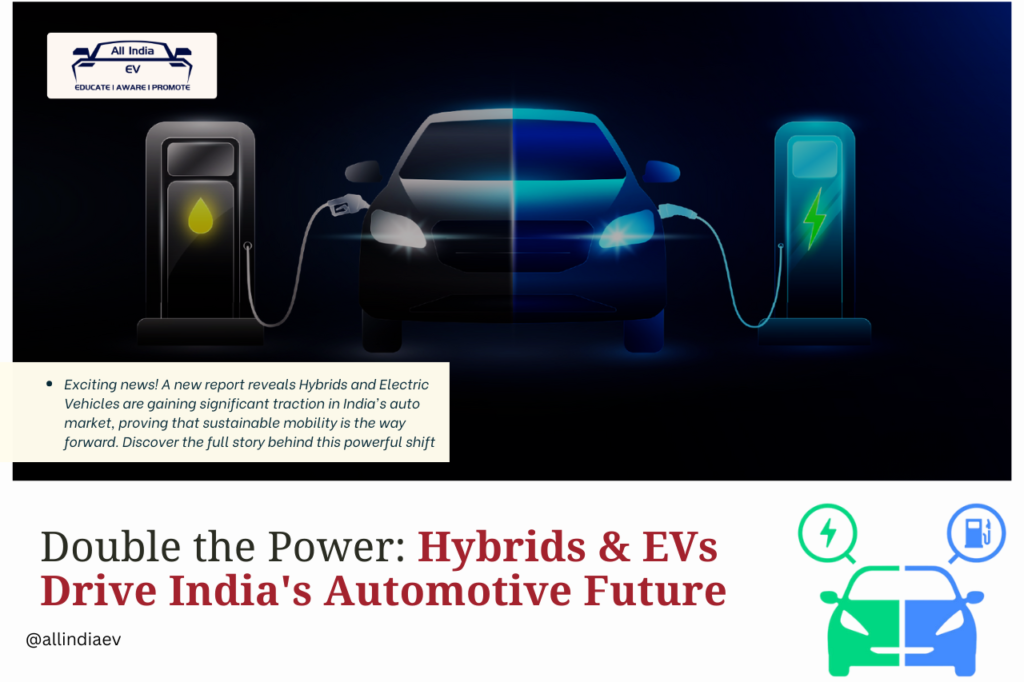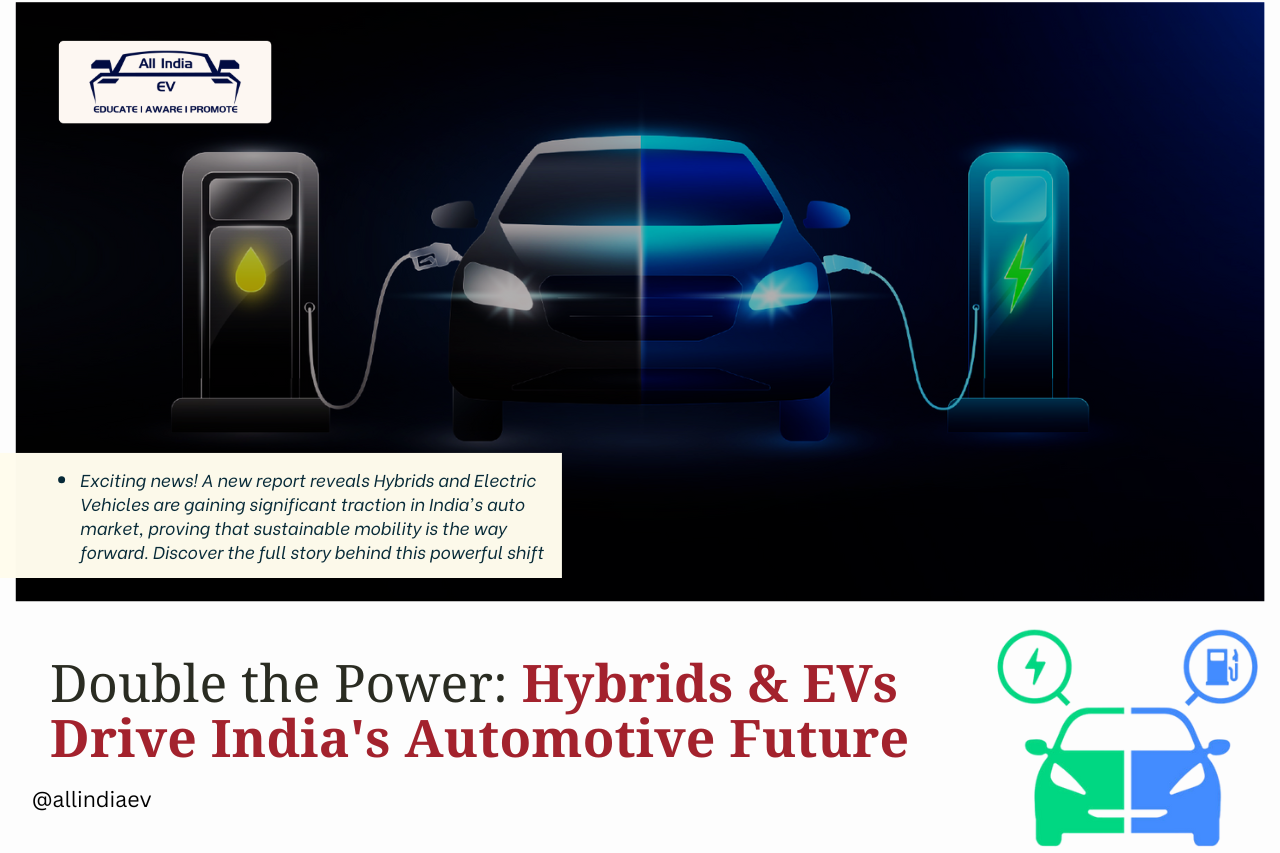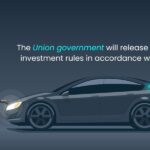
Hybrids & EVs Power Ahead Together in India’s Auto Market: Report Debunks Myth That SHEVs Hinder EV Adoption Growth
In a significant shift from conventional assumptions, a recent report by HSBC Global Research reveals that hybrid vehicles and electric vehicles (EVs) in India are not at odds but are in fact growing in tandem—reshaping the future of the country’s clean mobility landscape.
Despite the perception that hybrids might hinder the momentum of EVs, data shows otherwise. The Indian auto market is witnessing a parallel rise in both battery electric vehicles (BEVs) and strong hybrid electric vehicles (SHEVs), driven by consumer demand, new model launches, and supportive state-level policies.
Parallel Growth Reflects Multi-Powertrain Future
States like Uttar Pradesh, which offer incentives for SHEVs, are also seeing strong sales growth in BEVs. According to HSBC’s analysis, this indicates a multi-powertrain trajectory for India’s auto market in the medium to long term.
Sales of electric vehicles in FY25 mirrored the rise in hybrid adoption, demonstrating that these technologies are appealing to distinct consumer segments. Rather than competing for the same buyers, hybrids and EVs are contributing collectively to a cleaner and more diversified mobility ecosystem.
EV Penetration Accelerates with New Launches
The EV segment has seen a surge in adoption, thanks to a wave of new launches over the past six months. Four-wheeler (4W) EV penetration increased from 1.9% in the first half of FY25 to 2.5% in Q4 FY25, and further to 3.2% in Q1 FY26.
Notable contributions came from the MG Windsor and Mahindra & Mahindra’s (M&M) latest BEVs. MG addressed concerns about battery longevity and replacement costs by offering innovative leasing solutions. Meanwhile, M&M focused on reducing range anxiety with larger battery packs and positioned their EVs as aspirational lifestyle products—aligning with evolving customer expectations.
Hybrids Hold Steady, Drive Diesel Decline
Hybrids have also steadily grown their footprint. SHEVs accounted for 2.4% of total passenger vehicle (PV) sales in FY25, up from 2.1% in FY24. Since their introduction in late 2022 by major automakers like Maruti Suzuki (MSIL) and Toyota, hybrids have primarily captured market share from diesel vehicles.
Interestingly, despite generous state incentives, hybrid growth plateaued in FY25, indicating a market stabilization. Diesel’s share, on the other hand, remained steady, suggesting that hybrids have already carved out their niche without significantly impacting other fuel types.
A Broader Vision for Clean Mobility
HSBC’s report challenges the notion that hybrid adoption detracts from EV progress. It emphasizes that promoting SHEVs is not a zero-sum game; instead, it builds a broader foundation for clean transportation.
“Incentivising hybrids is helping build a broader clean vehicle base, rather than cannibalising EV growth,” the report states. Upcoming launches and continued policy support are expected to accelerate the adoption of both hybrids and EVs, paving the way for a more sustainable automotive future.










